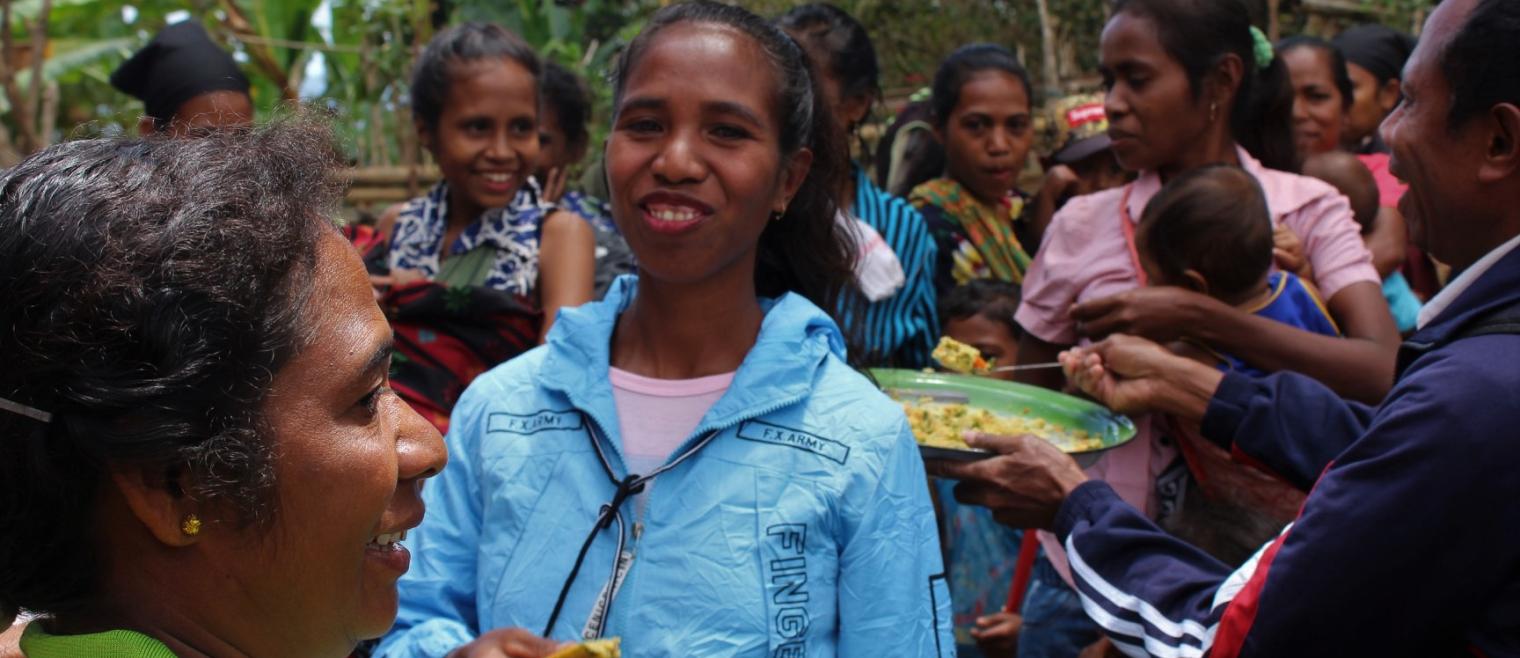Spotlight Initiative accelerated Timor-Leste's progress toward reaching its targets under the 2030 Agenda, particularly SDG 5 on Gender Equality, but also SDG 3 “Health and Well-Being”, SDG. 4 “Quality Education”, SDG 8 “Promote inclusive and sustainable economic growth, employment and decent work for all”, SDG 10 “Reduced Inequalities”, SDG 11 “Sustainable Cities and Communities”, SDG 16 “Peace, Justice and Strong Institutions”, and SDG 17 on “Partnerships”.
The programme aimed to strengthen and increase partnerships and solidarity across civil society, government, media, private sector and development partners. The Initiative empowered individuals, equipped institutions at national, sub-national and community levels with the policies, systems and mechanisms to prevent and respond to violence against women and girls (VAWG), and encouraged the public to challenge harmful gender norms. Using innovative approaches, the Initiative built a social movement of diverse advocates and agents of change for gender equality and social inclusion.
Total cost: $15,926,340 | Direct beneficiaries: 341,231 | Indirect beneficiaries: 1,183,643
Innovations
Linking Survivors & Legislators
The Initiative involves participatory analysis of legislative gaps by women and girls at risk of violence and dialogue with legislators and oversight bodies for bridging the formal and customary justice systems and informing ongoing judicial reforms. This ensures that the law will protect all and leave no one behind.
Whole-school Approaches
The investment in whole-school interventions uses an evidence-based approach to create change on gender norms for the future generation. The Initiative covers in-school and extra-curricular programming from basic through secondary education, involving students, parents, teachers, school administrators and mechanisms such as Student Councils as channels for promoting lasting change.
Mobilizing Communities for Change
This Initiative supports gender-equitable norms, attitudes and behaviours for healthy relationships, self-esteem and respectful masculinities through community-level interventions involving parents, youth networks (Scouts, Youth Parliament) and faith-based groups. These are complemented by mass media behaviour change communication products.
Employers & Workers as Partners
The public and private sectors play an important role in transforming the way that workplaces engage with women at risk of violence and men, who are most often the perpetrators of intimate partner violence. The Initiative facilitates workers to dialogue with employers, address legal gaps in labour laws, and use the new international labour standard on elimination of violence and harassment (ILO Convention No. 190) to create workplaces free from VAWG.
Sustainable CSO Solutions
The Initiative supports a VAWG Conference to raise the visibility of local expertise and good practices and promote collaboration among groups. Partnerships with women’s funds for developing the organizational capacities of women’s groups and civil society organziations (CSOs) contributes to new approach that diversifies funds and empowers Timorese CSOs. These CSOs lead the development of ending violence against women and girls (EVAWG) initiatives and "walk the talk" for transformative change.
Women & Girls at the Centre of Services
The Initiative improves the capacities of health and justice service providers to offer quality essential services and increase care-seeking. Involving survivors to improve internal case management systems ensures data protects survivors, and that policies can better meet their needs. The approach transforms the power relationship between institutions and clients to ensure more ethical and accessible services for all.
UN agencies
UNDP, UNICEF, UN Women, UNFPA and ILO
National Focal Point
Alex Tilman, alexandre.tilman@one.un.org
National Reference Group
List of members

